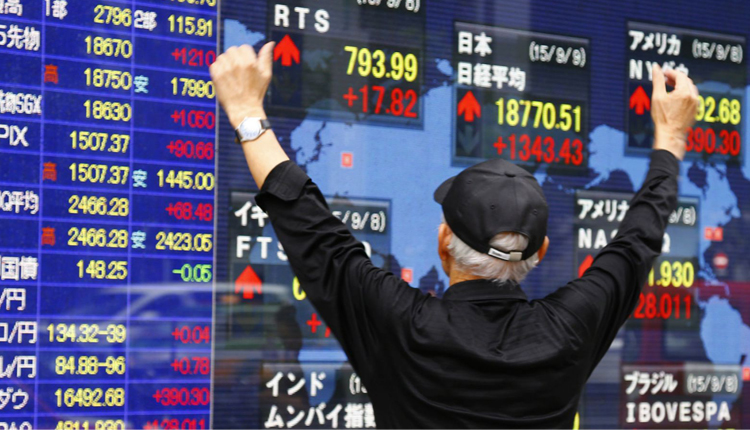Asian markets traded mostly higher on Friday as investors cheered a report saying American officials may be weighing the possibility of easing tariffs on China, in a bid to push forward trade talks.
That optimism lifted shares in the Greater China region: Hong Kong’s Hang Seng index rose 1.14 percent in late-afternoon trade. On the Chinese mainland, the Shanghai composite gained 1.42 percent to 2,596.01 while the Shenzhen composite and the Shenzhen component both advanced.
In Japan, the Nikkei 225 added 263.80 points, or 1.29 percent, to 20,666.07 while the Topix index was up 14.39 points, or 0.93 percent, at 1,557.59. South Korea’s Kospi gained 17.22 points, or 0.82 percent, to 2,124.28.
Australia’s benchmark ASX 200 notched up 0.5 percent to 5,879.6, with all sectors rising.
The Wall Street Journal reported Thursday that U.S. Treasury Secretary Steven Mnuchin proposed lifting all or some of the tariffs on Chinese imports to give Beijing a reason to make deeper concessions in ongoing trade talks between the two countries.
But U.S. Trade Representative Robert Lighthizer resisted the idea, worried that it could be considered a sign of weakness, the Journal added, citing people with knowledge to the matter. A senior administration official told CNBC’s Eamon Javers that “there’s no discussion of lifting tariffs now.”
Still, the news “helped to mitigate the dashed hopes for an announcement of a peace trade deal at the side-lines of the World Economic Forum in Davos from January 22nd-25th,” Christy Tan, head of markets strategy and research for Asia at the National Australia Bank (NAB), wrote in a note.
President Donald Trump on Thursday canceled his delegation’s trip to Davos, citing the ongoing partial government shutdown. U.S. officials are still expecting Chinese Vice Premier Liu He to visit Washington at the end of January for further trade talks.
The National Australia Bank’s Tan questioned if a tariff agreement would be able to turn around China’s slowing economy, but analysts at Eurasia Group said that Trump and Chinese leader Xi Jinping’s desire to avoid tariff escalation reduces the probability of talks breaking down within the first half of the year.
“Fearful of the negative reaction of jittery markets to a collapse of talks, the two sides have taken a constructive approach, refusing to let lateral geopolitical, Iran sanctions, and cyber-related tensions sink negotiations,” the analysts said in a note.
“Rather than reach a comprehensive agreement by the theoretical deadline of 1 March, the two sides will extend talks,” they added, saying the extension could be for another 90 days.
Thursday’s report from the WSJ also sent U.S. stocks higher overnight.
The U.S. dollar index, which tracks the greenback against a basket of its peers, last changed hands at 96.050 as of 3:14 p.m. HK/SIN.
The yen, viewed as a safe-haven asset, traded at 109.44 to the dollar, weaker than levels near 108.00 earlier in the week. The Australian dollar was at $0.7193, dipping from an earlier high of $0.7205 while the euro fetched $1.1392.
Source: CNBC


